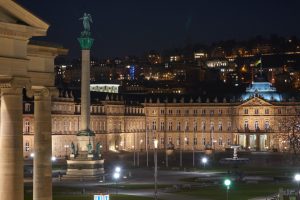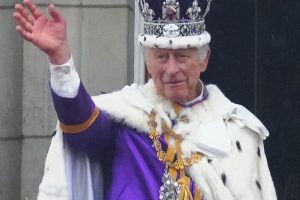
Photo by Isaac Mayne / DCMS
Bilal Atkinson, UK
On Christmas Day, 1066, William the Conqueror, after his invasion of England and by force of arms, was crowned King at Westminster Abbey in London.
Since then, Westminster Abbey has been the venue for the coronation of 40 monarchs, including the recently crowned King Charles III.
On Saturday, May 6th, 2023, after serving 70 years as Heir apparent to the throne of the United Kingdom, he is the oldest person to have been crowned King, and in a much more peaceful manner than that of William the conqueror. No monarch in the history of the UK has ever waited longer for the crown or has been better prepared for the high-profile office.
His mother, Queen Elizabeth II dedicated her 70 years reign to her people with wisdom, diplomacy, discretion and a life of service and in doing so gained great international respect. At the time of her coronation the majority of the UK population claimed to belong to the Church of England, but in this day and age, only a tiny proportion of the population are regular Anglican churchgoers and since migrations to the UK in the 1950’s, huge numbers of Muslims, Hindus and Sikhs are now resident in the UK along with Christians.
By the Grace of God, King Charles acknowledged this by inviting people from all walks of life, particularly those guests who were honoured for their extraordinary national and community endeavours. At his mother’s coronation, many of the male members of the aristocracy donned in their robes and crowns were invited. This coronation was a much more egalitarian gathering than the coronations of old.
During the coronation ceremony, the first voice that was publicly heard was that of a young boy who said “Your Majesty, as children of the Kingdom of God, we welcome you in the Name of the King of Kings.” The King replied, “In His Name and after His example, I come to serve and not be served.”
The recognition is when the King is shown to those in the Abbey for reassurance that they have the right man. After that the King must also take the oath to rule over his people with justice and mercy, which he did.
Before being anointed with ‘holy oil’, the King removed his Robes of State signifying his humility in front of God, recognising that God is the King of Kings. This particular part of the coronation was performed behind closed screens. After this he was eventually crowned King and a little while later, his wife Camilla, was crowned Queen.
The main theme of the coronation was steeped in religious Christian doctrine and ritual such as taking the artefacts of crown, sceptre and orb from the altar of God and handing it to the King during his reign. We may remember those same artefacts were returned to the alter of God at the funeral of Queen Elizabeth II, highlighting the fact that all things belong to God and they all shall return to Him.
King Charles also added an introduction to the recognition and oath, that despite promising to be committed to the Church of England, he will seek to foster an environment in which people of all faiths and beliefs may live freely and peacefully. In this respect he wants to be a unifying force, connecting with ethnic minorities and disadvantaged groups. His understanding of all religions will therefore be an asset in the UK’s multi-faith and multi-ethnic society.
In a gesture marking the significance of religious diversity of his realms, the King spent his final moments in the Abbey receiving a greeting from leaders and representatives from Jewish, Hindu, Sikh, Muslim and Buddhist faiths.
King Charles has always been a public-spirited person, endeavouring through his many charitable concerns, especially the Prince’s trust, to make life better for all people no matter their colour or creed.
Outside the Abbey there was a vociferous minority who rejected him as King, but the silent majority, numbering tens of thousands, lined the route from the Abbey to Buckingham Palace, who openly displayed their respect for King and hopefully, his unifying reign as monarch of the United Kingdom.
The Worldwide head of the Ahmadiyya Muslim Community, Hazrat Mirza Masroor Ahmad sent a message of goodwill which states:
“I pray that the occasion of His Majesty’s Coronation proves not only a means of bringing people of different nations together but also a means of fostering a spirit of trust and mutual understanding in society and between nations.
It is my prayer that may God Almighty through His grace and Beneficence keep our honoured King safe and in good health. May his reign be one of peace and prosperity for the world, and may the attributes of justice, tolerance and freedom of belief forever remain the guiding principles of the British Monarchy. Ameen.”
About the author: Bilal Atkinson is Editor of the Christianity Section of The Review of Religions. He is a retired police officer having served in forensics of scenes of crime for over two decades. He is also serving as President of the Hartlepool Chapter of the Ahmadiyya Muslim Community UK.




Add Comment